|
Digital Photography
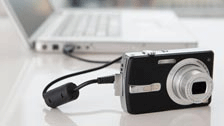
Thinking about buying a new camera for Christmas? Then read on!
Have you got a box full of photos that you never look at? Have you promised yourself that you'll organise them all one day? Will you do it? Me neither! So I took up digital photography. I've still got the drawer full of 'hard print' photos (the collection's grown since I last looked). But digital photography is so much fun and even if I now have a memory card full of images I may not revisit for some time to come my digital collection takes up far less space and I can share individual photos with anyone, wherever they live - as long as they've got a computer.
As someone who enjoys painting I find the digital camera an invaluable tool - and aide memoire, always handy these days..... As well as a sketch pad I usually take one or more photos of the subject I want to paint. (see my blog) There's no denying that 'real' film still has its place but there are many joys of the virtual. Some advantages include the following. There's no need to buy film and to have the images processed (DIY is fun but a complicated business) so each photo is cheaper to produce and failures can be deleted quickly and easily. No more headless portraits back from Boots. No need to carry reels of films through customs or out on a 'shoot'. (You'll need to remember to check the batteries and make sure there's space in the memory, of course.) The other enjoyable thing you couldn't easily do before is digital manipulation. (Sometimes there's a downside). Photoshopping* is great. No more wrinkles or red eye. See the new slimmer you at the tweak of a button, change the colours if they are not quite right and take out the bits of the photo you don't actually need. Not setting out to deceive - simply using artistic licence...
You can also usually take short moving images with your camera - and you can play the stills or movies back at large size through a computer or even a TV and you can print out using a standard printer, so no peering at a photo size printout smaller than the size of a postcard.
In this article I'll try to share some of the information that I've learned and I hope it will encourage you to investigate and hopefully get you started. I'm not writing for an expert - but it would be great if experts out there would read and contribute to the page.
Before the main article I'd like to point out a site I've recently come across which you might find useful:
It's the Digital Photography School at http://digital-photography-school.com/ The site has equipment reviews, resources, projects and tricks and tips. It is currently featuring a project called the Hundred Strangers Project, which has recently been featuring in another blog about art which you might also like called the EAC art awards blog. Scroll down the page to find the entry.
Types of cameras
It's hard to buy a mobile phone these days without its own camera built in and some are quite good but for the real thing they come in different shapes, forms - and prices. You can buy a basic point and shoot compact camera for anything from about £60 upwards. These cameras are usually light in weight and relatively easy to use. For more professional results you will need a digital single lens reflex (DSLR) - these are more like the film cameras in that they have interchangeable lens such as wide angle and telephoto lenses of high optical quality, but some of the higher end compacts will do almost as good a job. That depends primarily on the number of pixels (more later). But aim to buy one that has at least 10 megapixels and around 14.1 megapixels or more if possible. For a DSLR you will need to pay from upwards of £500, unless you can find a bargain online.
Choosing a camera
In some ways it might be best to buy a cheap and cheerful model to get used to the idea and to learn how to use it with your computer. They usually come with an image programme. These vary in usefulness and certainly aren't 'complusory' since you can usually download the image straight to your computer without. The manuals vary in usefulness too! They may be printed and shipped in the box or they increasingly come as a digital file (usually a pdf, which you will need to view on your computer and/or print off). So don't be put off!
The features that are important for a novice user are: the resolution (number of pixels, or 'dots' per image), as that determines the quality of the image it can produce, the type of battery used and how hungry it is for battery power, whether you need to charge the battery or replace them with standard batteries, the quality of the display screen or view finder (some LED screens are hard to see in bright weather, so a separate view finder is worth having), whether or not it has a zoom - if you need that feature - and also how easy it is to eliminate hand shake (again can be very useful). Many will come with features you probably never need to use. Weight and portability are probably important too.
It's worth noting that the price of cameras are almost as much about fashion, including the colour as they are about technical issues! Some popular cameras include the following:
 The Nikon COOLPIX L25 Selling at the time of writing at Amazon at approx £55 The Nikon COOLPIX L25 Selling at the time of writing at Amazon at approx £55
 The Panasonic DMC-TZ range Selling at time of writing at Amazon from about £180 The Panasonic DMC-TZ range Selling at time of writing at Amazon from about £180
and a Digital SLR (with interchangeable lens) example:
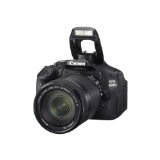 The Canon EOS 1100D Currently at around £340 The Canon EOS 1100D Currently at around £340
Buying your camera
You can buy from popular outlets, such as PC World where you can see what you're getting and possibly talk to a salesperson, some of whom can be knowledgable. Sometimes you can pick up a bargain. If you are confident about what you want to buy then Amazon has some good prices. Interestingly as already mentioned, prices can even vary depending on what colour body you choose! So a blue compact may be set at a lower price than a silver or black body! There are a good number of specialist outlets - especially online. One example is Wex Photographic express at http://www.wexphotographic.com/home/default.aspx .
Courses
A good way to pick up the lingo and to learn with others is, of course, to join a course. There are a large number of courses available - and some holiday companies organise residential courses - a really good way to start and enjoy meeting others who are would be photographers. Once you are more confident you could sign up for a Photoshop course but they can be quite expensive - and other versions are available, including almost free ones. Photoshop TM, is a popular image manipulation programme but others are available and there is a cut down version called Photoshop Elements which is cheaper. But learning something like Photoshop, really adds to the sheer joy of digital photography.
Courses online
This activity is really suited to learning online, of course. Especially when you just start out.

The BBC's Webwise section includes some pages about this topic and are really worth looking at.
http://www.bbc.co.uk/webwise/topics/living-and-interests/photos
A site to inspire
http://dailypost.wordpress.com/2012/09/07/weekly-photo-challenge-near-and-far/
Another sight to inspire

(an entry from the Wildlife Photographer of the Year)
Some less inspiring aide memoires from my collection
The Open Garden Squares weekend in London in June saw many photographers eager to take images of places normally hidden behind closed gates. Here's a few of mine:
The BMA garden pond
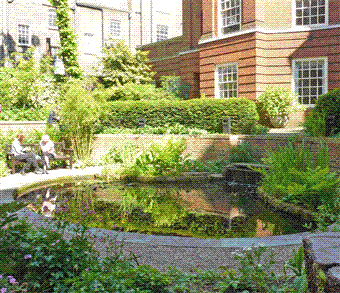
The Royal College of Physicians
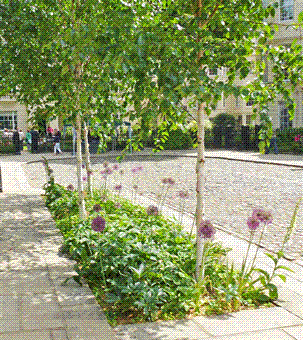
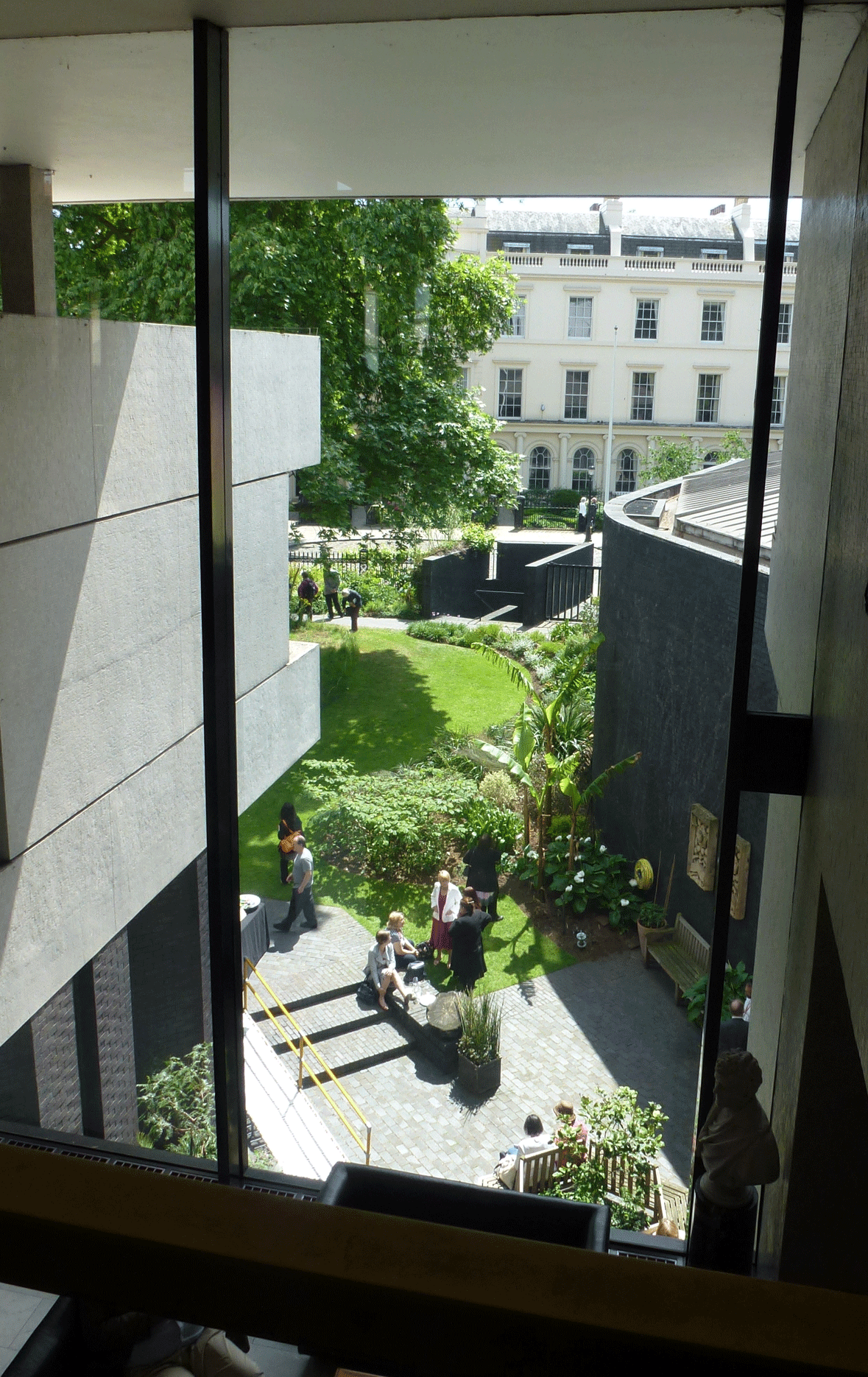
Please feel free to offer contributions (including your own images) to this site: chris.baker.london@gmail.com
_______________________________
* Photoshop is one of the most popular image manipulation software packages in use, but other brands are available
We would welcome a blog from someone who is taking up digital photography as a new hobby, and would guide us through his/her travails. See Blogs.
|
Chris Baker, 23/01/2007
|
|
|
|